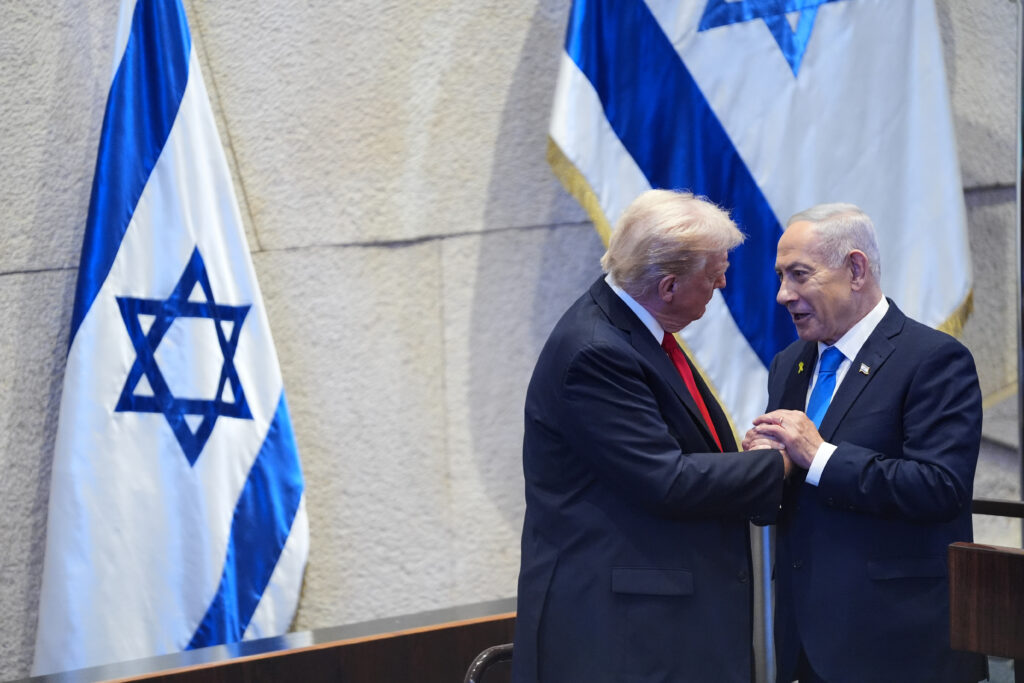Israel is seeking a far-reaching 20-year security agreement with the United States that would reshape the future of U.S. military assistance and anchor the relationship through 2048 — Israel’s 100th anniversary — according to a report in Axios citing Israeli and American officials.
The proposal, discussed in recent weeks, would represent the longest and most expansive bilateral defense pact ever attempted between the two countries. It would replace the current 10-year memorandum of understanding (MOU) — signed under the Obama administration in 2016 — which guarantees Israel roughly $4 billion annually.
But the emerging contours of the next MOU reflect a sharply different political landscape in Washington, defined by rising skepticism of foreign aid among Republicans aligned with President Donald Trump’s “America First” philosophy.
According to Axios, Israel proposed a 20-year agreement that would funnel more U.S. aid into joint American-Israeli research and development rather than direct military assistance — a shift designed to appeal to Republicans questioning the scale of foreign aid commitments. The collaboration would cover defense technology, defense-related artificial intelligence, and Trump’s proposed “Golden Dome” missile-defense initiative, Israeli officials told the outlet.
“This is out-of-the-box thinking,” one Israeli official told Axios. “We want to change the way we handled past agreements and put more emphasis on U.S.-Israel cooperation. The Americans like this idea.”
The reported plan would also ensure that a substantial share of the funding flows back into the American defense industry — a point long emphasized by both countries. Under existing agreements, roughly 80 percent of U.S. military aid to Israel must be spent in the United States.
Yet as U.S. and Israeli officials quietly explore a revamped long-term pact, Prime Minister Benjamin Netanyahu is insisting the opposite in public.
Asked about the Axios report in an interview with Australian broadcaster Erin Molan, Netanyahu denied any such proposal exists.
“I don’t know what they’re talking about. My direction is the exact opposite,” he said, arguing that Israel should move toward greater self-reliance.
“I think it’s time to ensure that Israel is independent,” Netanyahu added. While he noted that U.S. aid generates American jobs and that Israel appreciates the support, he said he ultimately wants “an even more independent Israeli defense industry.”
The push for a new MOU comes as Trump has repeatedly highlighted the scale of U.S. assistance to Israel — often pointedly, and sometimes with visible discomfort from Israeli leaders.
In 2018, Trump downplayed concerns about withdrawing U.S. forces from Syria, saying:
“You know, we give Israel $4.5 billion a year. And they’re doing very well defending themselves.”
During an Oval Office meeting in April, Trump again emphasized the aid while Netanyahu sat beside him: “Don’t forget, we help Israel a lot. We give Israel $4 billion a year, that’s a lot.”
Despite Netanyahu’s rhetoric about independence, U.S. military assistance remains foundational to Israel’s doctrine of maintaining a “qualitative military edge” (QME) over regional adversaries. The United States has funded or jointly developed all three layers of Israel’s missile-defense network — Iron Dome, David’s Sling and Arrow — and U.S. contractors retain rights to technologies created under those programs.
U.S. aid also remains a political anchor of the 1979 Camp David peace framework, which includes long-standing commitments to both Israel and Egypt.
Although American aid once comprised a major portion of Israel’s defense spending, its relative share has dropped as Israel’s economy and defense industry have expanded. Israel’s 2025 Defense Ministry budget reached a record NIS 110 billion ($29 billion), part of a total security budget of nearly $37 billion — making U.S. aid a smaller but still strategically essential component.
Israeli officials reportedly believe that rebranding U.S. assistance as joint R&D — rather than straightforward military aid — may help secure Republican support during an era of growing isolationism in parts of the GOP.
Yet Netanyahu’s public denial signals that domestic Israeli politics, U.S. political dynamics, and Trump’s own shifting posture toward foreign aid could complicate negotiations.
(YWN World Headquarters – NYC)












4 Responses
The so-called State of “Israel” is merely a dependent of the United States.
It can’t act or survive without it.
correction: america’s current military aid to israel is 100% tied to the purchase of american goods and services. obama eliminated the 20% exemption in 2016, and the extra $500 million in special funding for anti-missile defence.
@ujm: the united states needs israel. uncle sam needs the military aid package, to subsidize the american arms industry, and its tens of thousands of highly paid american jobs. even if your hate doesn’t let you understand this.
1. Any agreement short of a treaty (which requires 2/3 approval in the Senate) for all purposes expires on Jan. 20, 2029. Israelis need to remember how effective the American security agreement signed by President Clinton was for Ukraine. When and if a left wing Democrat is elected president, expect that any aid to Israel will be replaced with sanctions against Israel (including restrictions on Americans sending aid to Israeli institutions).
2. Much of American aid is in credits to buy American goods, but the changing situation with China and Russia means that the United States is working full time supply its own forces and allies who will be with us in a war with China and Russia.
3. If Israel wants to survive it needs to become self-sufficient, even if this means lowering the standard of living to what it was 50+ years ago.